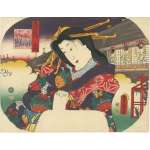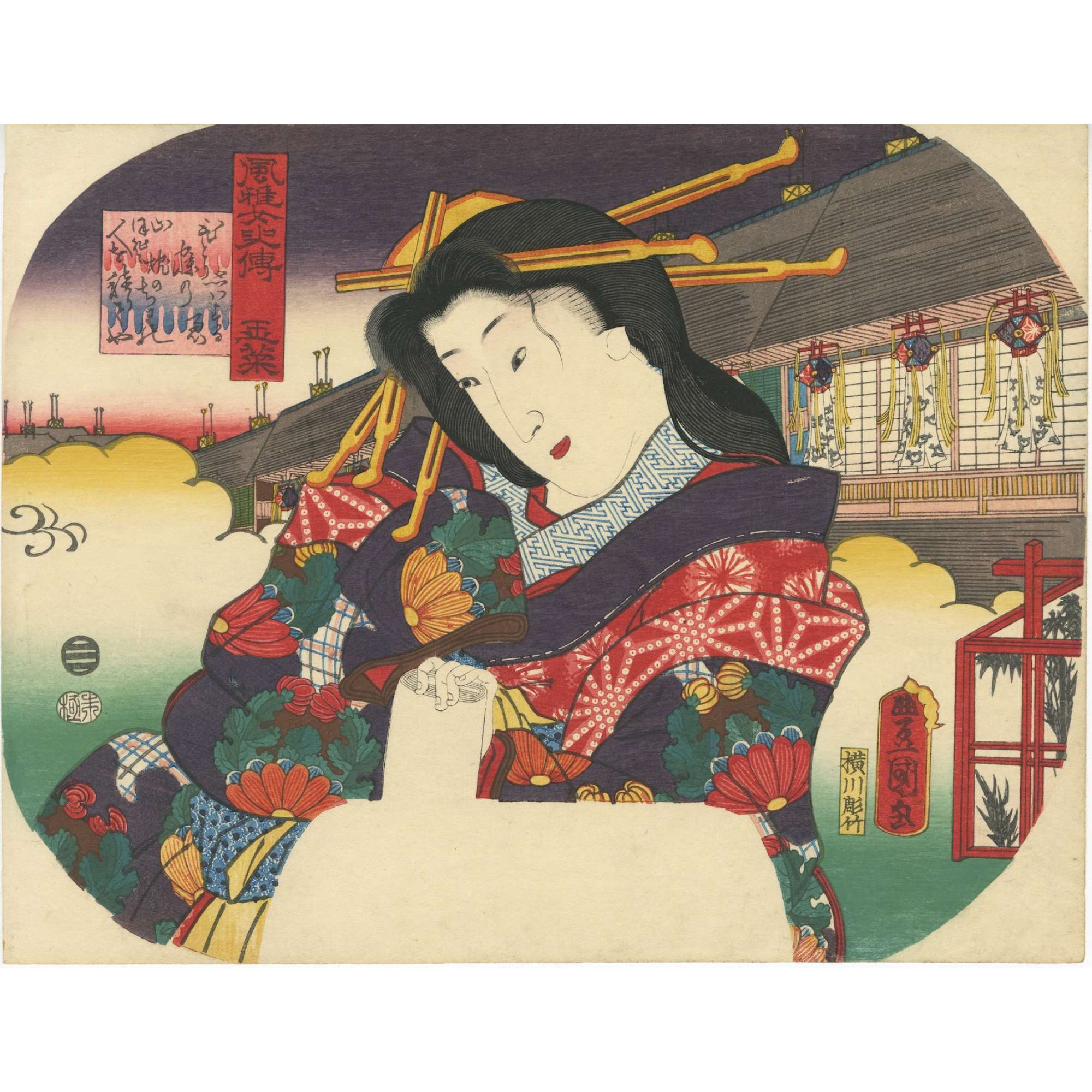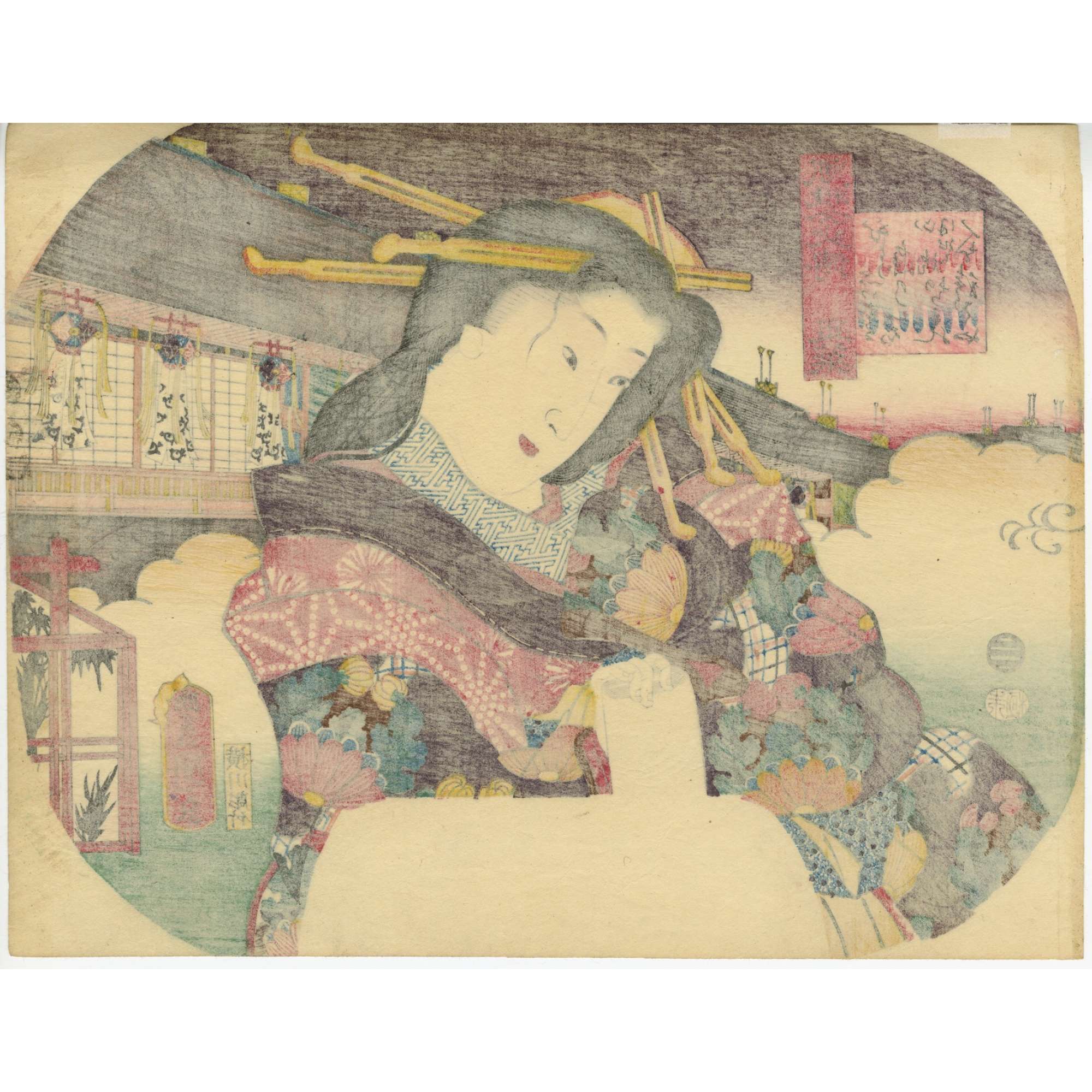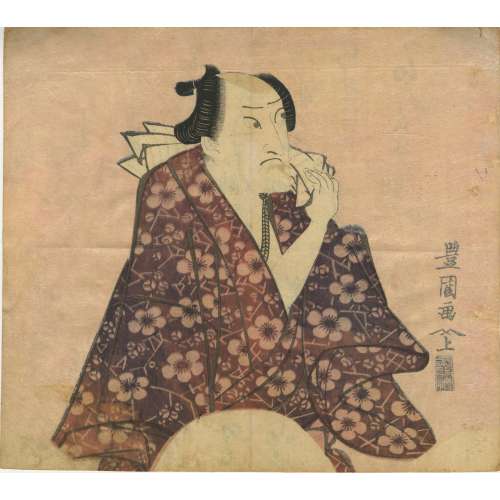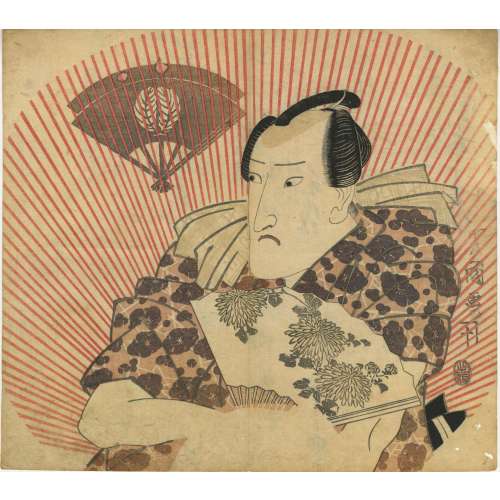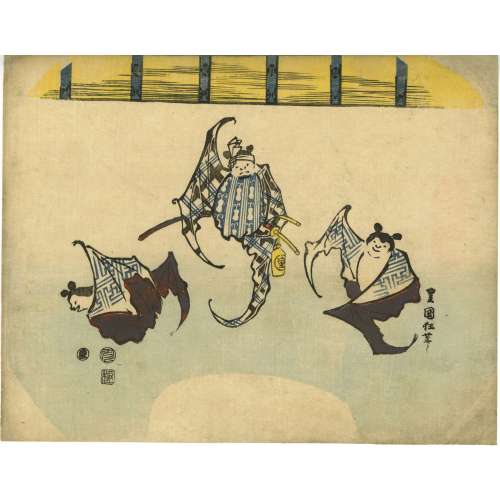Artist: Utagawa Kunisada [歌川 国貞], a.k.a. Utagawa Toyokuni III [三代 歌川 豊国] (Japanese, 1786 – 1865).
Signed: Toyokuni ga [豊国 画] in a red toshidama cartouche
Block carver: Yokokawa Takejirō [横川竹二郎] (Japanese, fl. 1845 – 1863), seal: 彫竹 – hori Take.
Publisher: Ibaya Senzaburō [伊場屋仙三郎] (Japanese, fl. c. 1845 – 1847).
Media: Untrimmed fan print (uchiwa-e), 232 x 300 mm.
Title: Tamagiku [玉菜].
Series: Chronicles of Elegant Women [風雅女史傳] (Fūga joshiden).
Combined date seal and kiwame censor seal: Ansei 6 (1859).
Other prints from the same series in this collection
[SVJP-0216.2016] — Princess Sotoori:
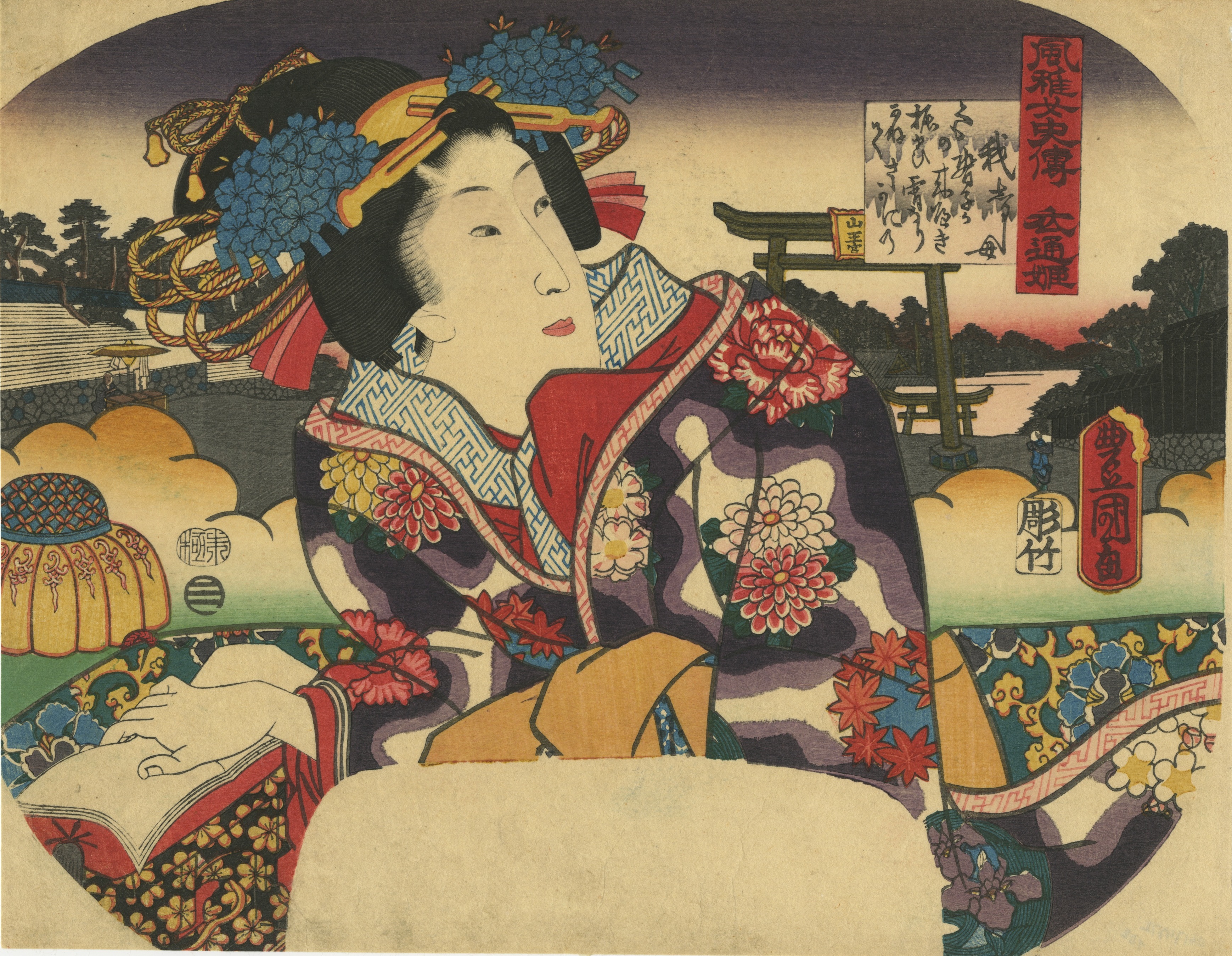
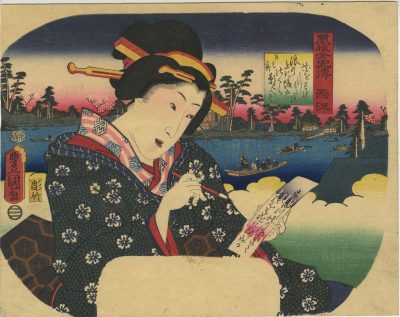
Note by Elena Varshavsky:
Tamagiku [玉菜] (Japanese, 1702 – 1726) – Precious Chrysanthemum (translated also as Jade Chrysanthemum; one can say also Gem Chrysanthemum). She was a courtesan famous for her beauty, kind heart, and countless artistic accomplishments. She died young and was deeply grieved by the establishment of Nakamanji-ya (中万字屋) for which she worked, and beyond. Her memory was celebrated during the Bon festival of the commemoration of the dead, and lanterns were hung at the gallery of that establishment and other neighbouring ones to commemorate her and appease her soul. These lanterns are seen behind her. Kabuki plays were continuously dedicated to her, she figured in Edo period literature and was often portrayed on ukiyo-e prints. In many cases, she was shown with the lanterns associated with her. Those lanterns were called “Tamagiku Lanterns”.
Other depictions of Tamagiku:
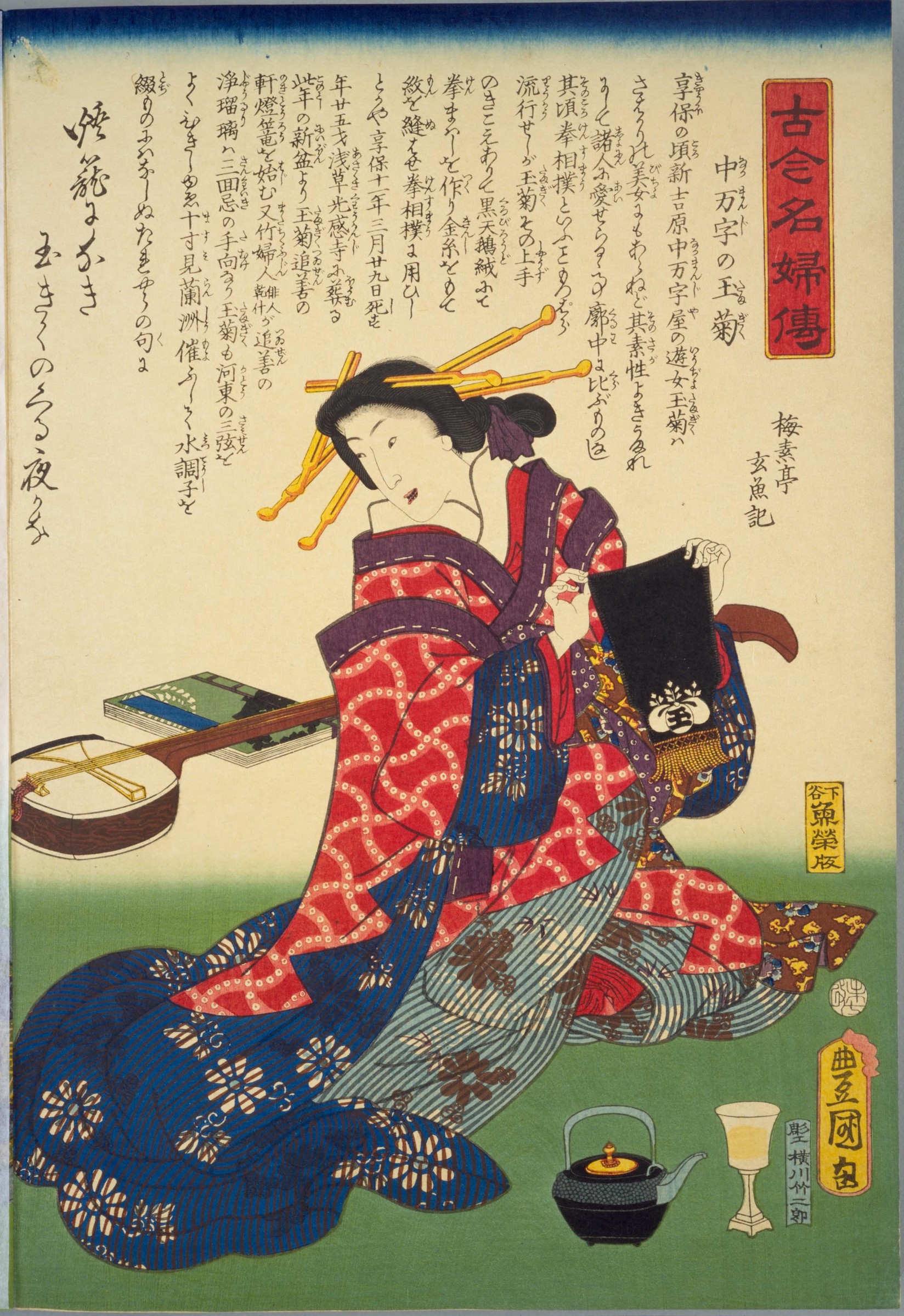
Tamagiku (Ancient and modern women’s biography) by Kunisada, 1859.
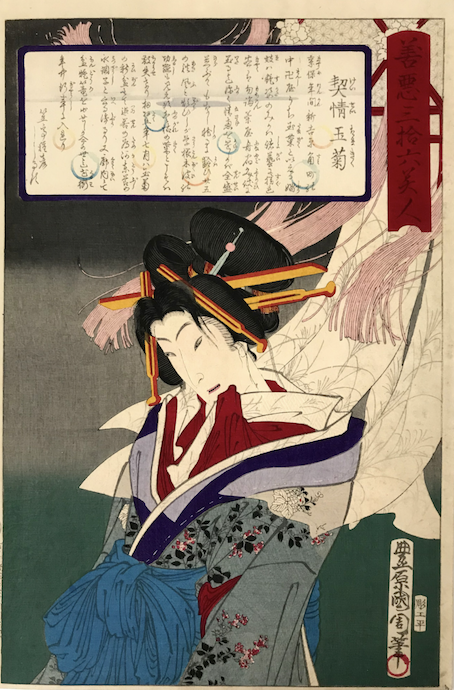
Courtesan Tamagiku by Kunichika.
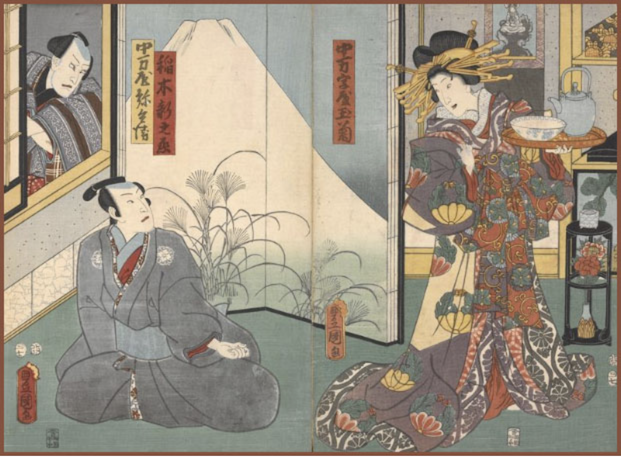
Tamagiku of the Nakamanjiya, Inaki Shinnojō, and Nakamanjiya Yahei (looking through the window) by Kunisada.

Nakamanji-Ya Tamagiku by Kunisada

Nakamanji-Ya Tamagiku by Kunisada, 1857
Sources: darumapedia; kajiipeta; kabuki21; crosseyedgallery.


